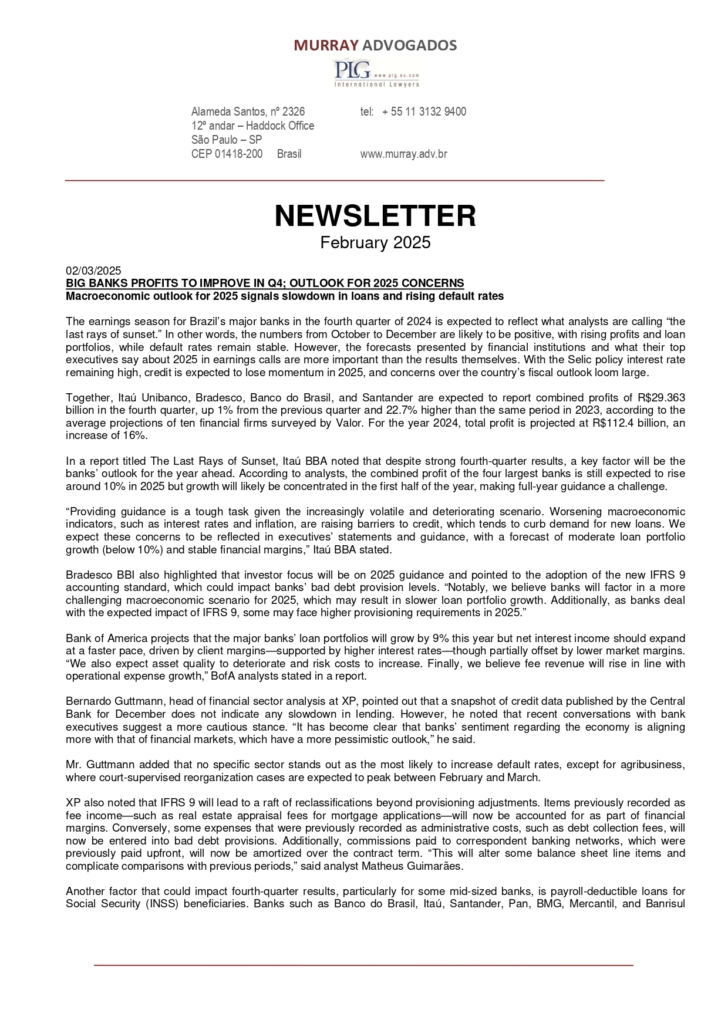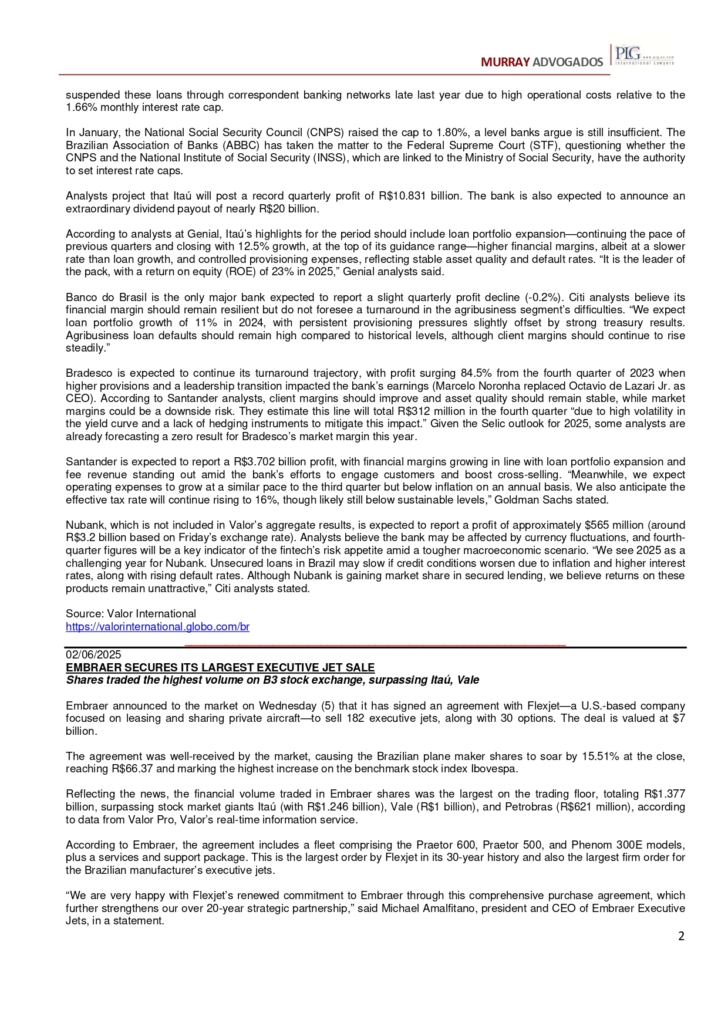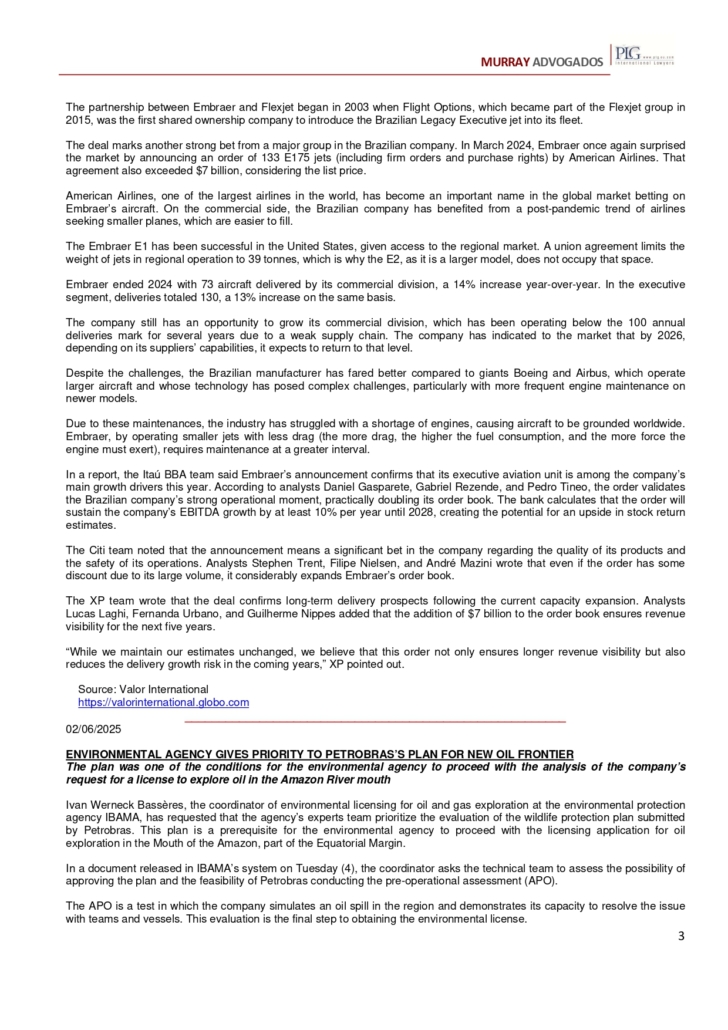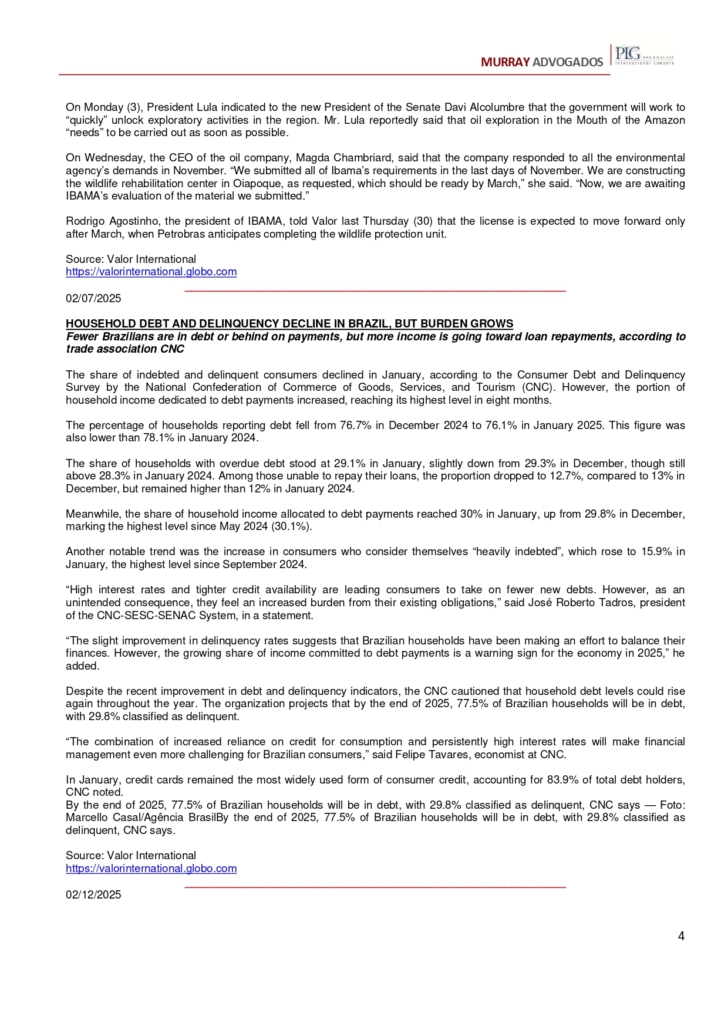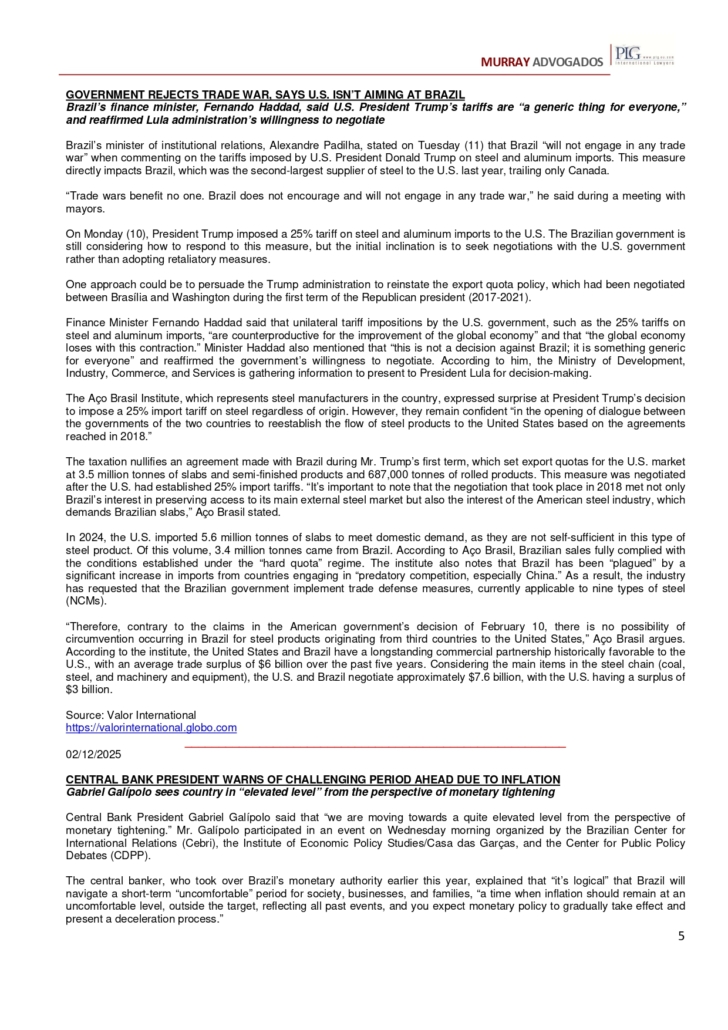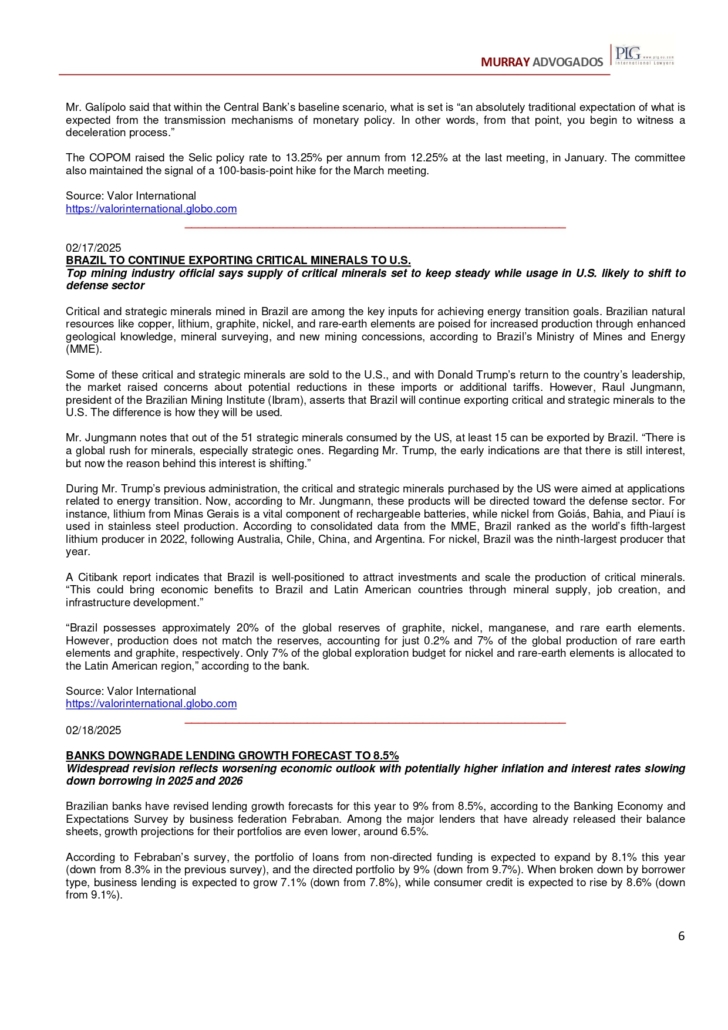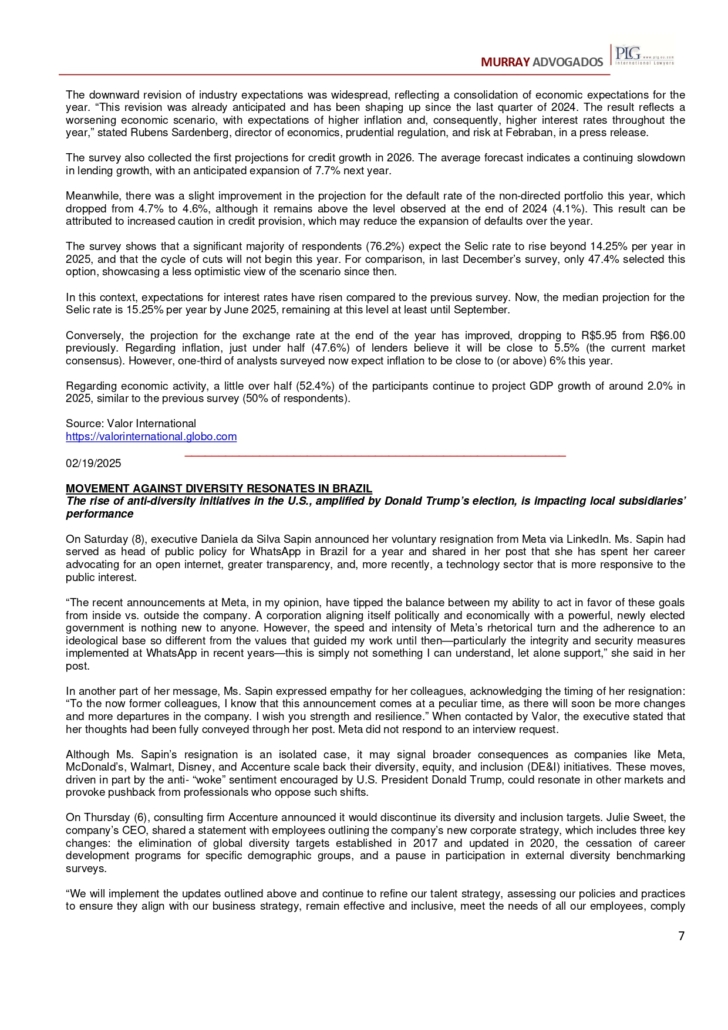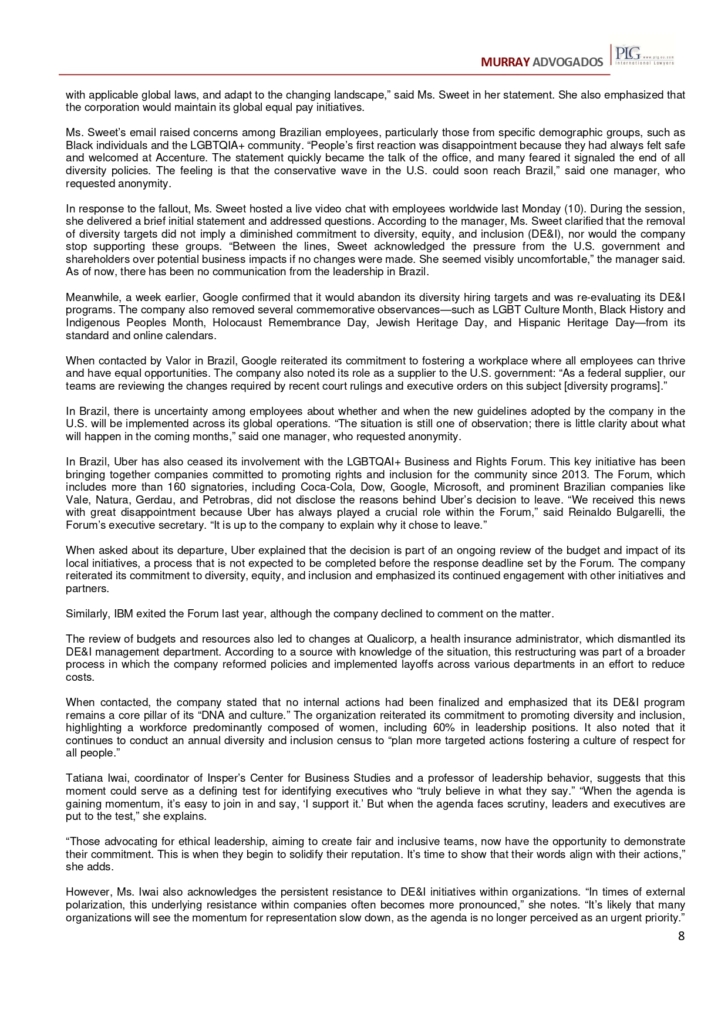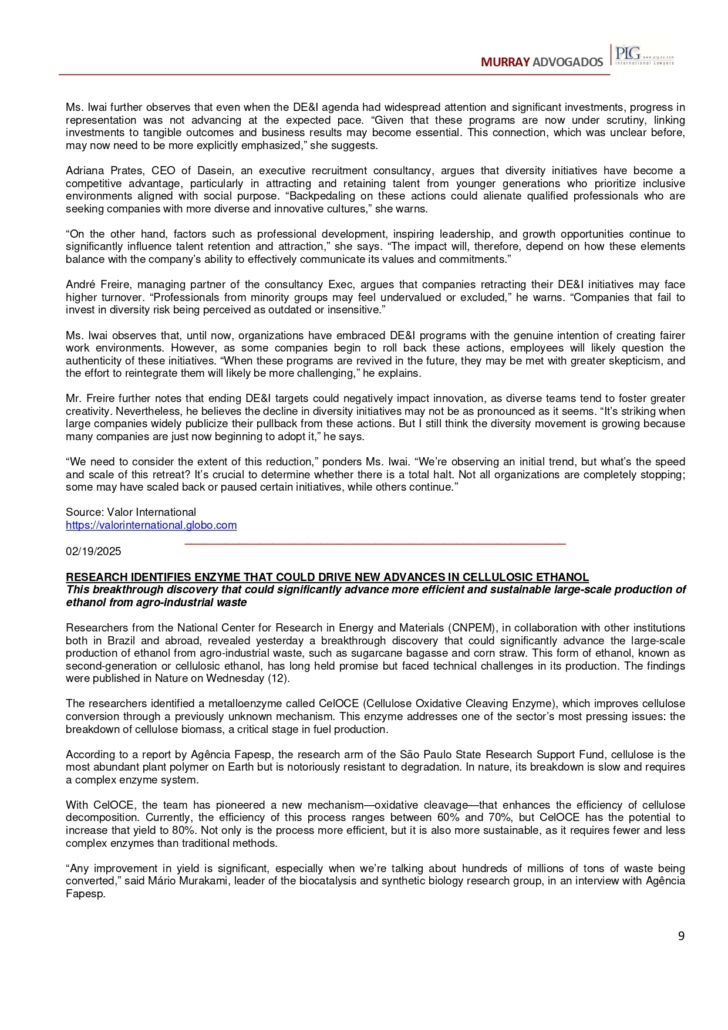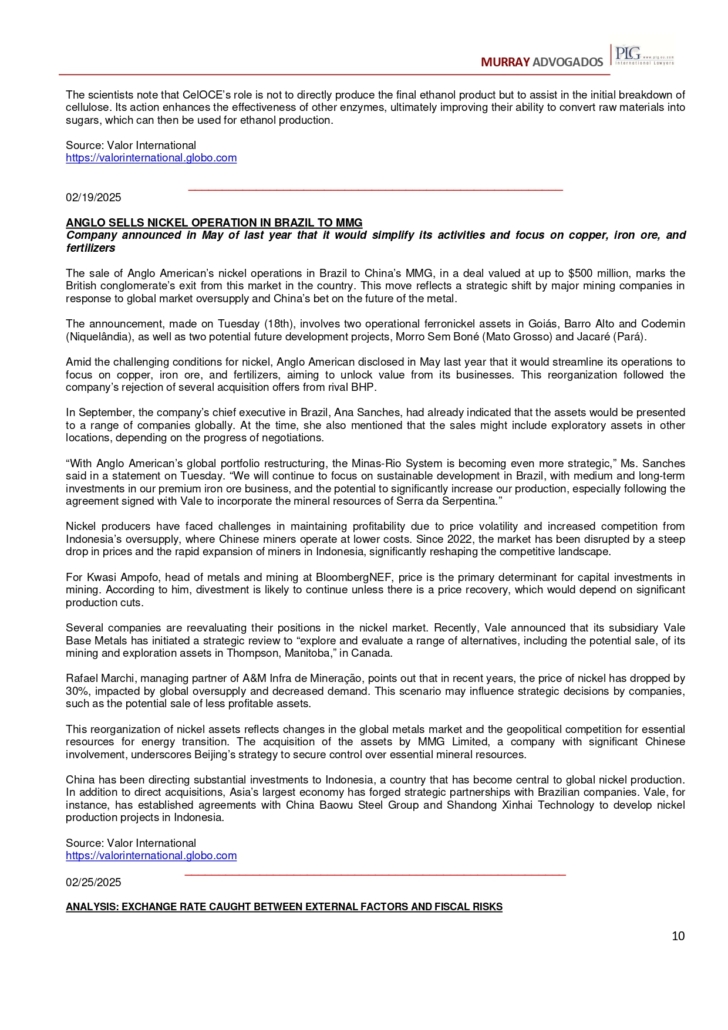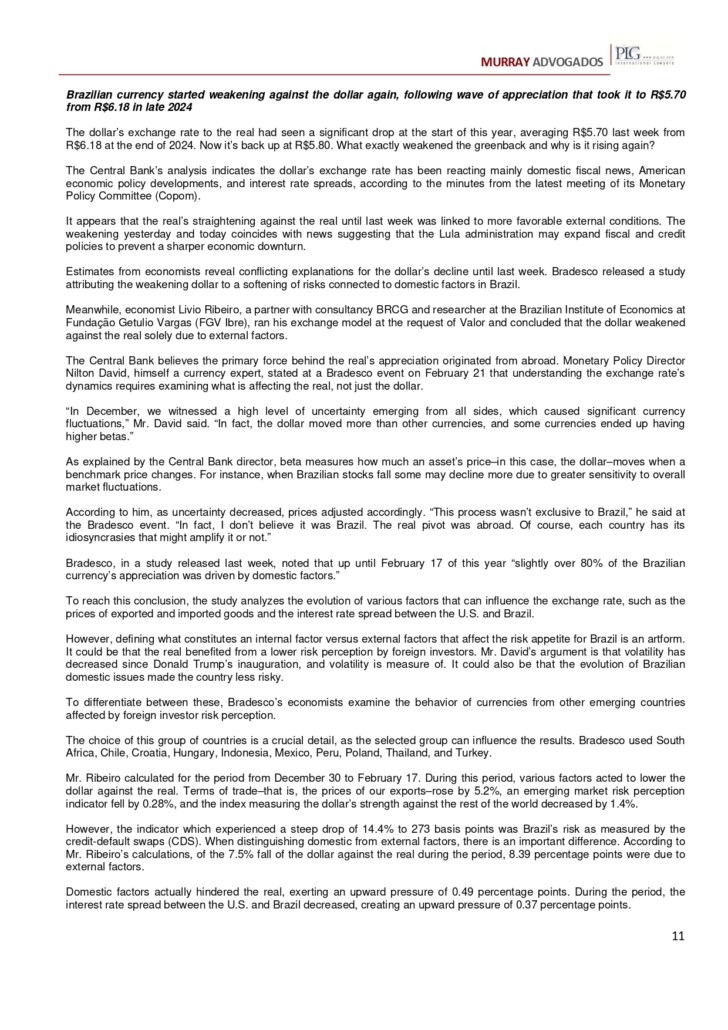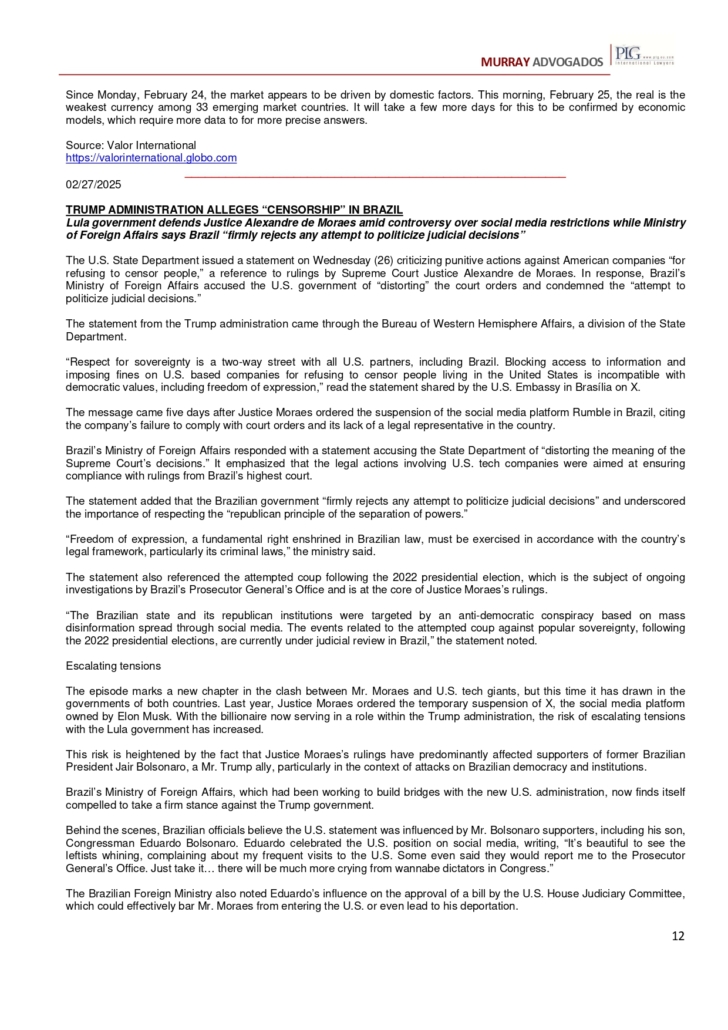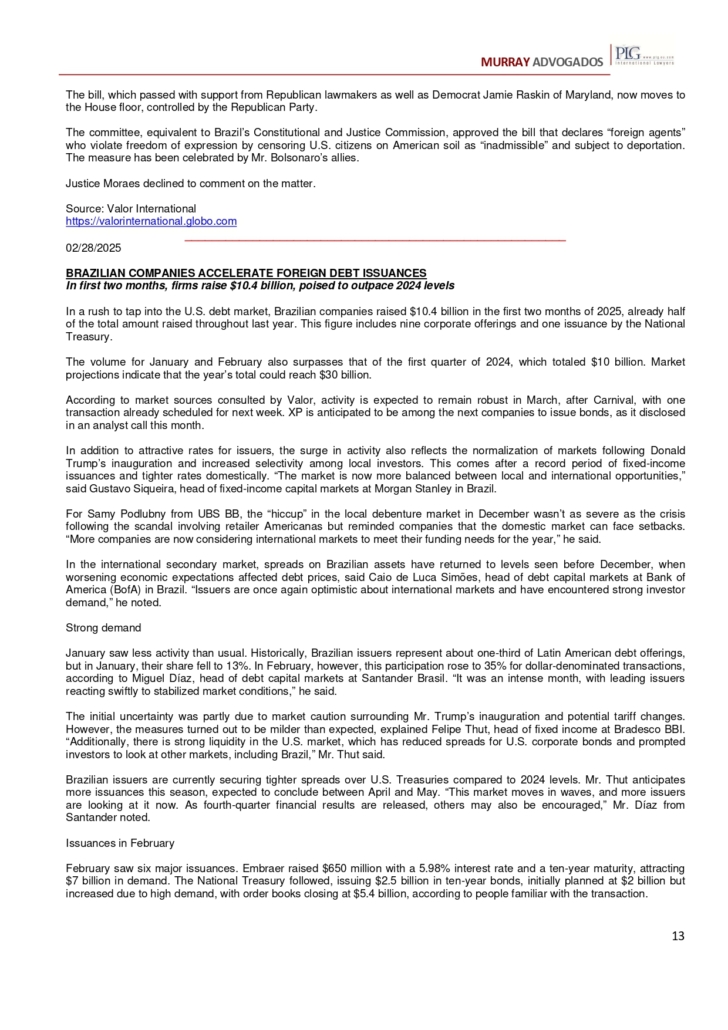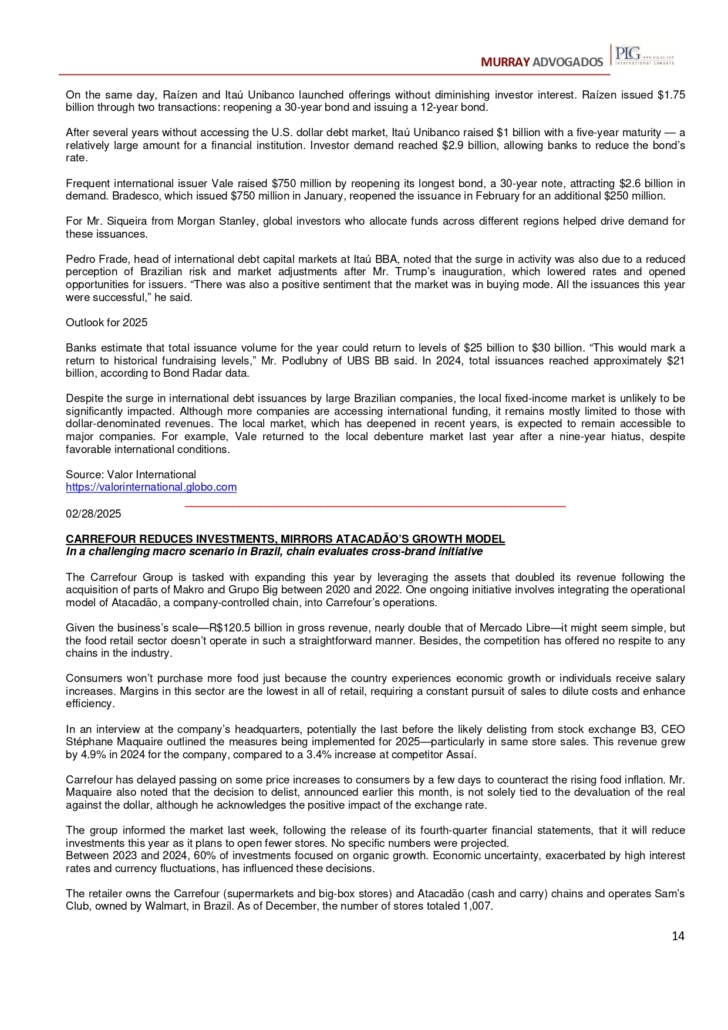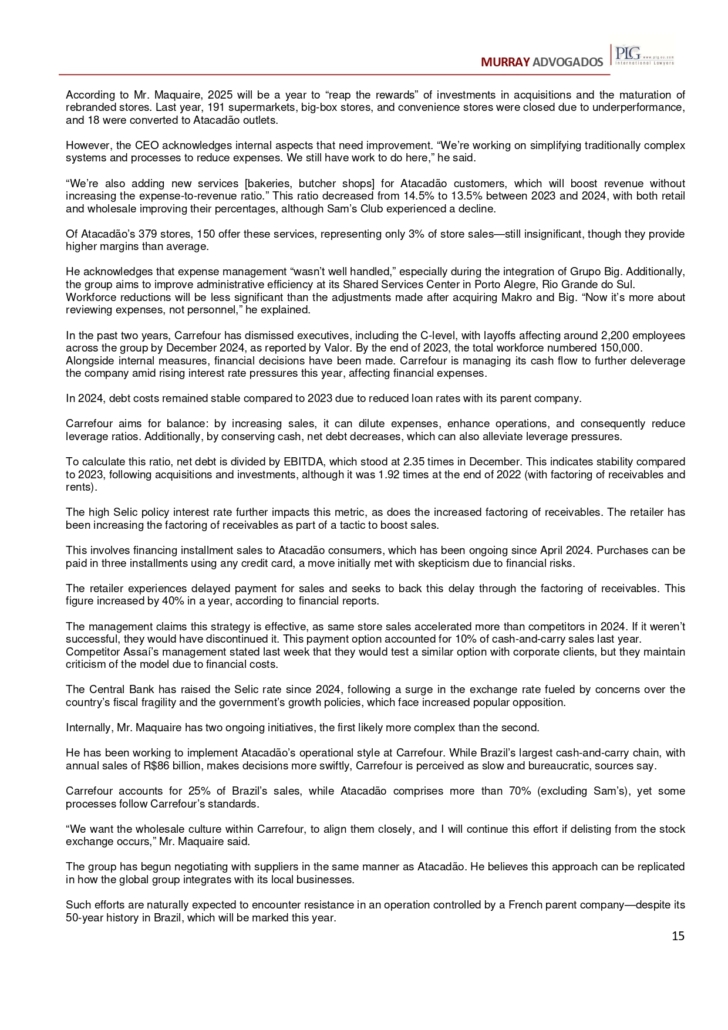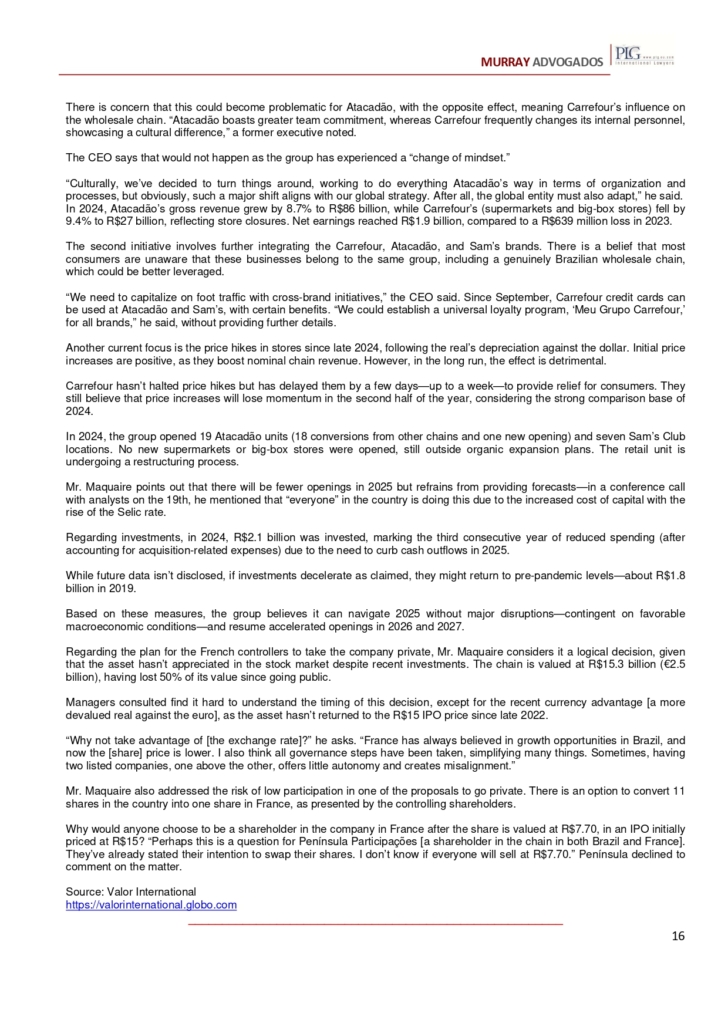Executive package eliminates tariffs on products such as meat and sugar, includes regulatory measures and incentives to boost staple food production in the next Plano Safra
03/07/2025
Amid mounting pressure and declining approval ratings, President Lula’s administration announced on Thursday (6) a package of measures aimed at reducing food prices in Brazil.
Import tariffs on several items, including coffee, sugar, and meat, will be eliminated. The package also includes regulatory initiatives and incentives to encourage the production of staple foods under the next Plano Safra, Brazil’s main agricultural financing program. The government will also ask state administrations to remove ICMS, a state-level tax, on these essential food products.
The announcement was made by Vice President Geraldo Alckmin after an afternoon of meetings with ministers and private-sector representatives at the Planalto Palace. Mr. Lula did not take part in the discussions, despite the meeting being scheduled on his official agenda. Mr. Alckmin said the president had approved the initiatives. The government has yet to calculate the impact of these measures on tax revenue.
Vice President Alckmin said the import tariffs to be eliminated include those on meat, currently at 10.8%, coffee at 9%, sugar at 14%, corn at 7.2%, sunflower oil at 9%, olive oil at 9%, sardines at 32%, biscuits at 16.2%, and pasta at 14.4%.
Regarding corn, Mr. Alckmin said the exemption would have “significant effects on the cost of eggs and animal proteins, such as meat.” Inflation in these food categories has been cited in surveys as a key factor in public dissatisfaction with the president.
Mr. Alckmin also announced an increase in the duty-free import quota for palm oil from 65,000 tonnes to 150,000 tonnes.
The tax reduction measures still need approval from the Executive Management Committee (GECEX) of CAMEX, Brazil’s Foreign Trade Chamber, with no set timeline for review. The exemptions will not have a predetermined expiration date.
“It’s hard to set a date, but it’s a matter of days. Once we receive the technical notes from the ministries, the new tariffs will take effect within a few days,” Mr. Alckmin said. He added that while specific impact estimates for each product were not yet available, the goal is to lower consumer prices.
Mr. Alckmin also said the government and supermarket sector are studying ways to publicize the best prices as a means to “stimulate competition and benefit consumers.” However, he did not provide details on how this would be implemented.
Staple food
Another initiative will be to ask state governors to eliminate state taxes on staple food products. The vice president noted that federal taxes on these items have already been removed, but some states still apply ICMS to essential food goods.
He added that this is the “first set of measures” agreed upon with the private sector. He also clarified that discussions did not include an export tax on Brazilian agricultural products, an idea that had been previously considered by the government.
The government also plans to strengthen food stockpiles and provide incentives in the next Plano Safra to boost staple food production. Mr. Alckmin did not confirm whether additional budget resources would be allocated for food stockpiling by CONAB, the National Food Supply Company, but assured that the state-owned entity would have the “necessary resources.” The proposed budget for this year, still pending congressional approval, includes only R$189 million for purchasing rice, beans, and corn.
For the Plano Safra, the aim is to extend low-interest financing to medium-sized farmers growing key crops, as previously reported by Valor. “The PRONAF, National Program for Strengthening Family Farming, already prioritizes lower interest rates to support staple food production. The idea now is to extend these subsidies to PRONAMP, which supports medium-sized farmers,” said Agrarian Development Minister Paulo Teixeira. “This will allow for a broader range of subsidized products focused on the staple food basket. We will extend these subsidies to medium-sized producers.”
Agriculture Minister Carlos Fávaro announced that for one year, the Brazilian Animal Product Inspection System (SISBI) will recognize products inspected under municipal oversight (SIM), allowing them to be sold nationwide. This policy will apply to milk, honey, and eggs, which were previously restricted to local markets.
“For one year, we will grant nationwide validity to SIM certifications. Products that pose no sanitary risks—such as fluid milk, honey, and eggs—can now be sold across Brazil without compromising food safety,” Mr. Fávaro said during the announcement.
People familiar with the matter told Valor that the meeting included heated debates and disagreements.
One key dispute arose when the government suggested indefinitely maintaining biofuel blending mandates for diesel and gasoline. The proposal upset producers, despite government officials arguing that higher blending levels—particularly for biodiesel and corn ethanol—increase animal feed costs. Industry representatives disagreed, asserting that greater biofuel production actually increases the availability of soybean meal and corn distillers’ grains (DDG), which are essential for animal feed.
Another contentious issue was the government’s proposal to create an app to display which supermarkets offer the lowest prices for certain products. Business associations argued that this could unfairly pressure small and medium-sized retailers, as large chains with greater scale could afford deeper discounts and promotions.
Industry representatives also urged the government to reconsider the recent increase in import taxes on plastic packaging, citing concerns over cost pressures on food producers.
*By Fabio Murakawa e Rafael Walendorff — Brasília
Source: Valor International


